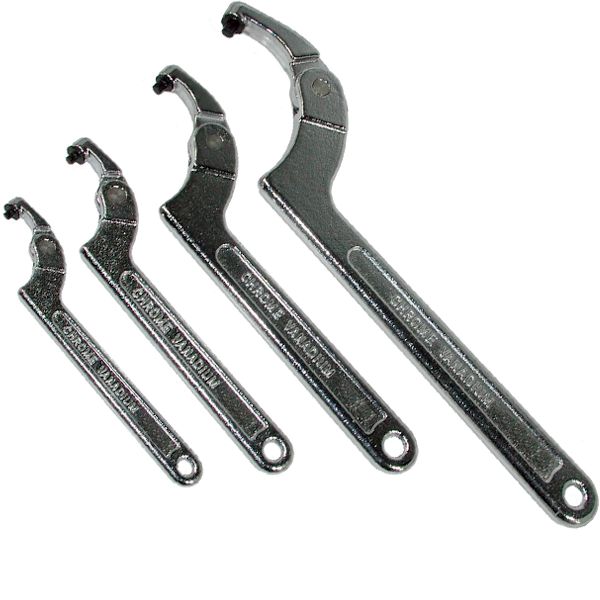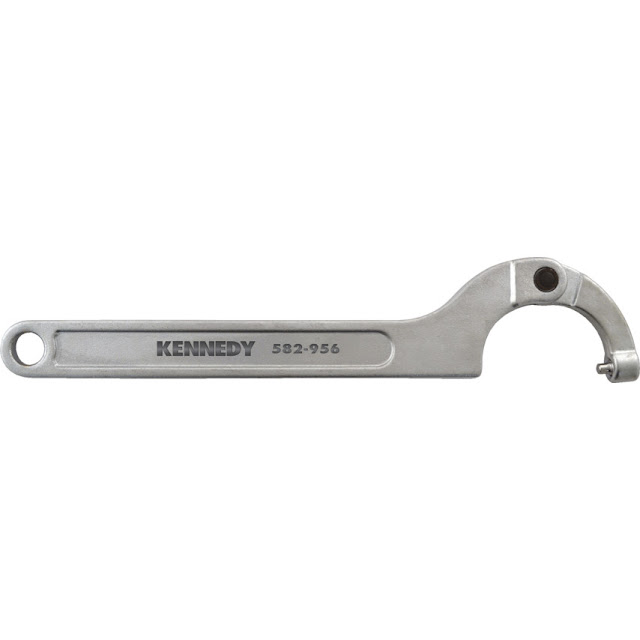What Is The Best Material For C Spanner Manufacturing?
A C Spanner is a versatile tool to use for many day-to-day residential,
commercial, and industrial applications. Motorbike users make use of this tool,
most of the time. No matter the type, a spanner is something that has to be
rigid or strong to withstand stresses and other materials. For example, the majority
of the nuts and bolts are metallic products, so the spanner can't be a wooden
product to deal with those hard nuts and bolts. In today's article, let's
compare a few materials and their eligibility to manufacture the C Spanner;
let's get to it!
How about wood variations? For day-to-day applications, you can't use
spanners made of wood variations. Well, a few toy-type wooden spanners are
there in the market, but those are not for use on hard nuts and bolts. All the
applications related to motorbikes involves metallic components, not wooden
ones. One can think that "pretty rigid wood variations are there,"
but to manufacture tools; none of those won't work. The C Spanner comes with a
large-sized head, so it has to be a rigid component, and when you exert a
massive force through the spanner's handle; wooden components would get
damaged, and it is a fact.
How about plastic? Well, it is pretty understandable that a C Spanner made
of plastics won't suit for residential, commercial, and industrial purposes.
Plastic is not a hard/solid material that would withstand the forces and
stresses. Again, you can buy plastic spanners at toyshops today, but those are
only toys. Anyway, if a manufacturer does produce C Spanner by using plastic;
it will come with corrosion-resistance properties. As you know, plastics won't
get corroded even when kept immersed in water. Anyway, the temperature handling
of this material is not up to industry limits.
OK, let's come to the right material now, which is metals. All the spanners
that we use for residential, commercial, and industrial applications are iron
ones. Still, we can't use random metals for it. For example, ordinary steel is
a metal, but it comes with poor corrosion-resistance properties. A C Spanner
would come across many environmental factors when you use it for any
application. So, the metal used for the manufacturing of it should come with
remarkable corrosion-resistance properties. On the other hand, the metal has to
be a hard one to withstand the applied forces and stresses. The handle of the C
Spanner undergoes massive forces when you use it to remove nuts and other
elements. Also, the head of the spanner goes through the same stresses and
conditions.
The majority of the spanner manufacturers use an alloy for their products.
And, a protective coating that enhances corrosion resistance properties makes
it more durable. Well, a lot of metal variations are there in the world such as
brass, copper, stainless steel, and titanium. But, you will hardly come across
a C Spanner made of brass today. Expensive metals such as titanium are less
practical to use for day-to-day tools due to the high-price. Even though many
rigid composite materials are now available in Australia, spanner manufacturers
don't use those as well. For the C Spanner, the ideal material is something
that is strong, corrosion resistant, affordable, and practical. Our previous
articles have explained the most-used alloy in detail; you will benefit from
reading those as well.


Comments
Post a Comment